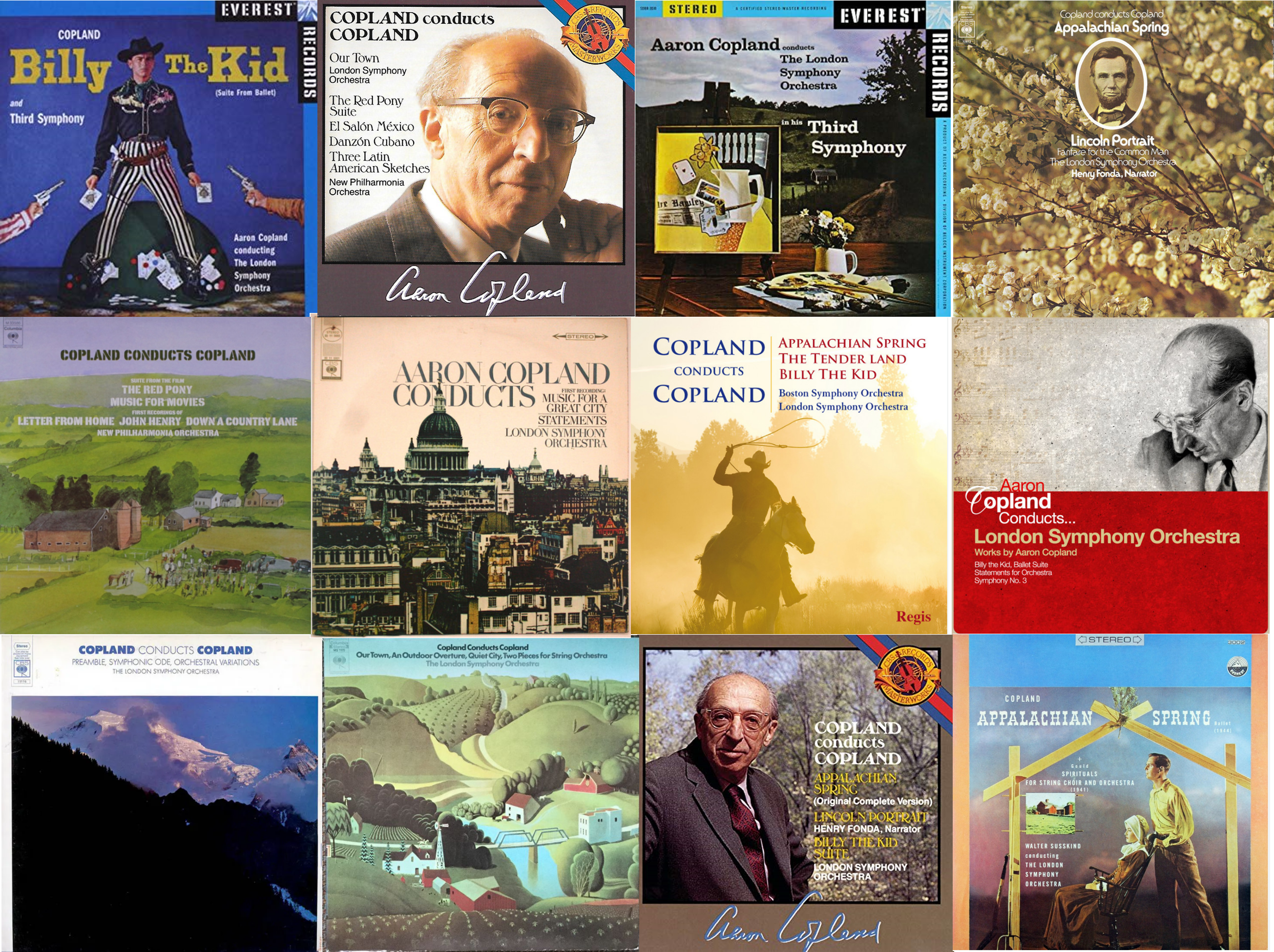
I bet you if I asked 100 people the question “Who has recorded the most pieces by Aaron Copland?” the most common answer by a very long way would be the New York Philharmonic conducted by Leonard Bernstein. However, the actual answer is slightly surprising. Not an American orchestra at all. In fact it is the London Symphony Orchestra who are way out ahead having recorded 28 of Copland’s works. That’s six more than the NYPO.
Interestingly, in joint third place (with 17 recorded pieces) are the St Louis Symphony Orchestra and the BBC Philharmonic. So two UK orchestras in the top four! It just goes to show then that we think an awful lot of Aaron Copland in the UK.
The feeling was mutual. He didn’t like the food much but he spent a lot of time here performing and conducting the LSO. (Watch this space, I hope to write another blog on that relationship).
And the conductor that has recorded the most Copland works? Why Copland himself with 40 pieces. You might surmise that Bernstein would come out second but in fact it is another Leonard – Slatkin who takes the silver medal with Bernstein in third place. Our own John Wilson comes in an impressive fourth.
The scoreboards are below.
Orchestras that have recorded Copland works:
- London Symphony Orchestra – 28
- New York Philharmonic – 22
- St Louis Symphony Orchestra – 17
- BBC Philharmoic Orchestra – 17
- Detroit Symphony Orchestra – 14
- San Francisco Symphony Orchestra – 10
- St Paul Chamber Orchestra – 8
Conductors that have recorded Copland works:
- Aaron Copland – 40
- Leonard Slatkin – 26
- Leonard Bernstein – 22
- John Wilson – 19
- Michael Tilson-Thomas – 18
- Gerald Schwarz – 13
- Dennis Russell-Davies – 11
- Antal Dorati – 8
- Hugh Wolff – 8
Apologies if I have missed anyone!
My London Symphony Orchestra conducted by Copland Playlist
Copland and the LSO made premiere recordings of numerous of his compositions. Some of them remain the best versions. Listen to my playlist. Some are the full versions and other bits are snippets. I hope that once you’ve heard the latter you’ll want to explore more.
Short Symphony – Symphony No 2 (1932-33) Copland’s abstract, neoclassic masterpiece “I was determined to write as perfect a piece as I possibly could”. Indeed, this is the “perfect” stepping stone to and from Copland’s later accessible works.
Statements for Orchestra I Militant (1935) Has Shostakovich entered the room? Copland wears his political leanings on his sleeve from one of his most unloved/rarely played orchestral works.
Old American Songs set 2 – At the River (1952) Sung here by William Warfield. It’s my favourite version – incredibly powerful and moving – one to make you weep!
Down a Country Lane vers for chamber orchestra (1964) This doesn’t sound like 1960s Copland because it was originally composed for the 1945 public information film The Cummington Story.
Ceremonial Fanfare (1969) – a lesser known fanfare from the autumn of Copland’s compositional career. A fanfare for our times – somewhat muted and introspective. A real similarity when played next to Statements Prophetic.
Orchestral Variations (1957) Copland’s superb transcription of his Piano Variations showcasing vibrant, colourful brass and percussion – a tour de ffforce! Twenty brilliant variations. One of my bucket list requirements – to hear this played live (see postscript).
Lincoln Portrait: Subito allegro (1942) The middle bit pf the patriotic work. Try to recontextualize. It works well in a Christmas setting -You can almost see kids sledding and having snowball fights!
Dance Symphony I. Dance of the Adolescent (1929). Creepy and playful with delicious woodwinds and xylophone. Stravinsky heard this work and described it as “a very precocious opus”!
Music for Movies: Sunday Traffic (1942) Originally from documentary film The City. The wonderful trombone banana skin ending is when a car comes off the road and ends up smashed to smithereens in a ravine.
Music for a Great City I. Skyline (1964) Launches with an uncompromising fanfare for the New York skyline with absolutely exhilarating syncopated Latin infused rhythms. Howard Pollack describes this suite version of the music from Copland’s last feature film Something Wild as a “crazy quilt”. It also includes music from the take called Incarceration and Nightmares. Truly unsettling incidental music with great use of bass clarinet, muted trombone, percussion and celesta. Seriously great! The LSO commissioned this work and did the premiere marking their 60th anniversary. Worth a reprise for there 120th?
Letter from Home (1944) Scored for dance orchestra and radio broadcast. During a trip to Mexico Copland received news of his mother’s death. It beautifully evokes a yearning homesickness. It is very sentimental but as Copland said (in defence of the piece) “it modulates”.
Two Pieces for String Orchestra. I. Lento Molto (1928) Mournful, but with tremendous strength and resilience. Something of Barber’s Adagio for Strings here – written 8 years before that pivotal work of the 20th century.
Dance Panels III. Scherzando (Rev 1962) A quick jokey piece played joyfully from what I have called Copland’s Greatest Hits. This borrows a cue from The Heiress soundtrack in which Catherine tries on a cherry red dress.
Statements for orchestra VI. Prophetic (1935) Copland recorded Statements twice with the LSO. The first version is not great. It was done in 1958. Perhaps, the second recording from 1965 shows that Copland had become a much better conductor? In the latter Copland and the LSO create a truly religious experience – a future vision of determination, endangerment, dignity, resignation, and ultimately hope and serenity.
Last but by no means least Symphonic Ode (1929). Copland’s moderneist works often seem like they paint a pictures of skycrapers, but the Ode is different. It has always been a hard sell, a bit like brutalist architecture! To the right ear or the right eye both are beautiful. I feel this work is closer to the true Copland than Appalachian Spring as all the ideas are his own. Listen to it a few times, allow your fingers to cling on to the granite and you may just grow to appreciate this piece like I do. It’s one of a select few Copland pieces that brings tears to my eyes!
Postscript
The 28 Copland works that the LSO has recorded are listed below. The ones marked * are with Copland as conductor. Several pieces have been recorded more than once. The dates of recordings are in brackets. If you wish to search the LSO’s full back catalogue (a tome of 1,191 pages!) then click this link.
- Appalachian Spring – suite (17/08/1958); (15-24/06/1961); (09-10/11/1970)*; (06-08/03/1986)
- Billy the Kid – suite* (17-18/11/1958)*; (15-24/06/1961); (28-29/11/1969)*; (06-08/03/1986)
- Ceremonial Fanfare (16-21/01/1991)
- Clarinet Concerto (22-24/06/1987); (18-19/11/1992); (26-27/06/2001)
- Dance Panels – ballet* (12/02 & 29/11/1969)
- Dance Symphony* (02-03/10/1967)
- Danzón Cubano* (09-10/11/1970)
- Down a Country Lane* (26/10/1968)
- Fanfare for the Common Man (26-29/10/1968)*; (19-22/10/1989); (16-21/01/1991)
- John Henry* (26-29/10/1968)
- Letter from Home* (26/10/1968)
- Lincoln Portrait (26-29/10/1968)*; (06/01/1992)
- Music for a Great City* (13-14/06/1964)
- Old American Songs (30-31/03/1993); (22-29/03/2003)
- Orchestral Variations* (26/10/1968)
- Our Town – suite* (02-03/10/1967)
- An Outdoor Overture* (02-03/10/1967)
- Two Pieces for String Orchestra* (06/11/1965)
- Eight Poems of Emily Dickinson (20-24/05/1994)
- Preamble for a Solemn Occasion* (14/06/1964)
- Quiet City (06/11/1965)*; (20-24/05/1994)
- The Red Pony – Morning on the Ranch (20-22/09/1978)
- Rodeo – Four Dance Episodes (26/10/1968)*; (6-8/03/1986)
- El Salón México (8-21/11/1970); (16-21/01/1991)
- Short Symphony* (05/11/1965)
- Statements (17-18/11/1958)*; (05/11/1965)*
- Symphonic Ode* (02-03/10/1967)
- Symphony No.3* (17-18/11/1958)
 Back in 2020, the London Symphony Orchestra announced that they would be playing Symphonic Ode with John Wilson and Orchestral Variations with Michael Tilson-Thomas. It’s not an understatement to say that I danced around my kitchen in celebration! Unfortunately, as these compositions require huge orchestras, both concerts were cancelled due to the need for social distancing as part of the response to Covid-19. 4 years on and starting to think about Copland’s 125th birthday and his long association with the LSO, wouldn’t it be great if these towering works of 2oth century music could be put back on the menu?
Back in 2020, the London Symphony Orchestra announced that they would be playing Symphonic Ode with John Wilson and Orchestral Variations with Michael Tilson-Thomas. It’s not an understatement to say that I danced around my kitchen in celebration! Unfortunately, as these compositions require huge orchestras, both concerts were cancelled due to the need for social distancing as part of the response to Covid-19. 4 years on and starting to think about Copland’s 125th birthday and his long association with the LSO, wouldn’t it be great if these towering works of 2oth century music could be put back on the menu?

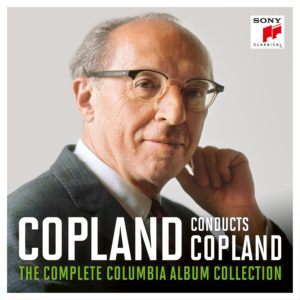
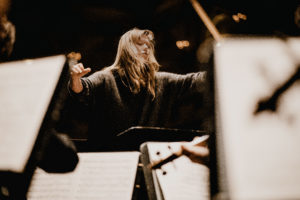
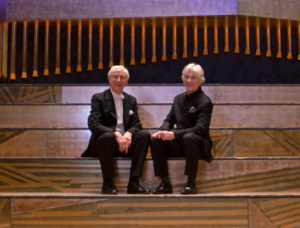
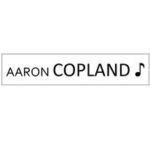




Leave a Comment